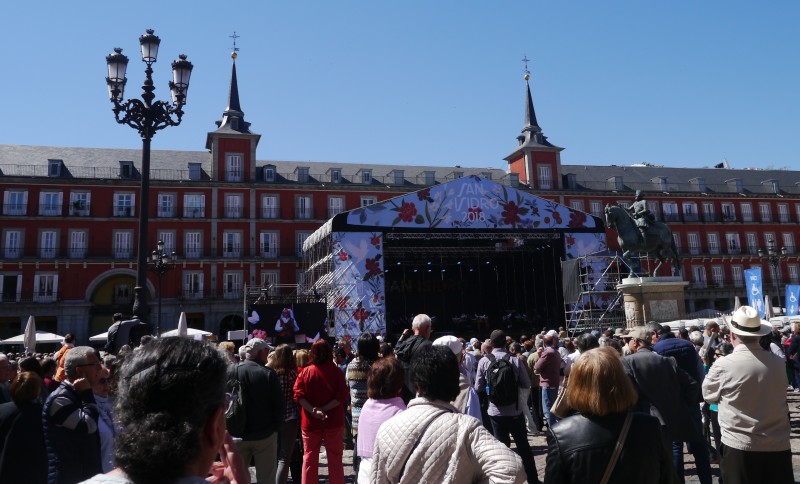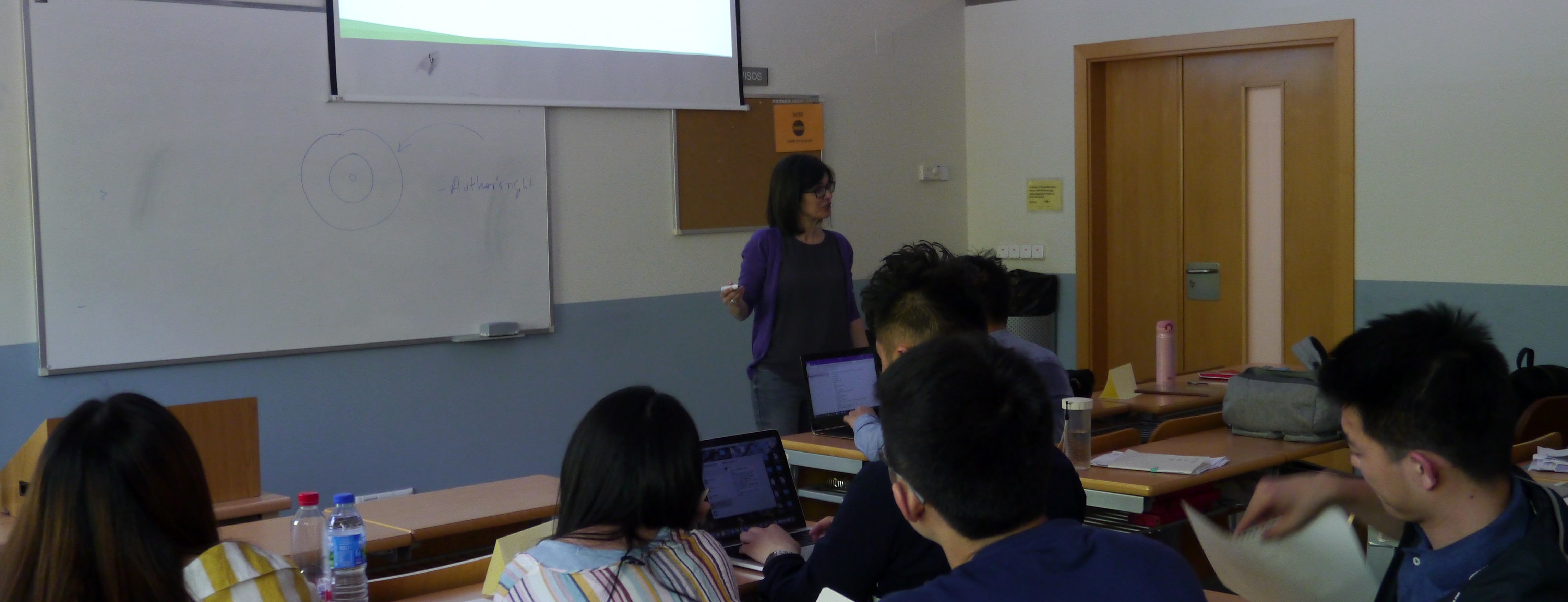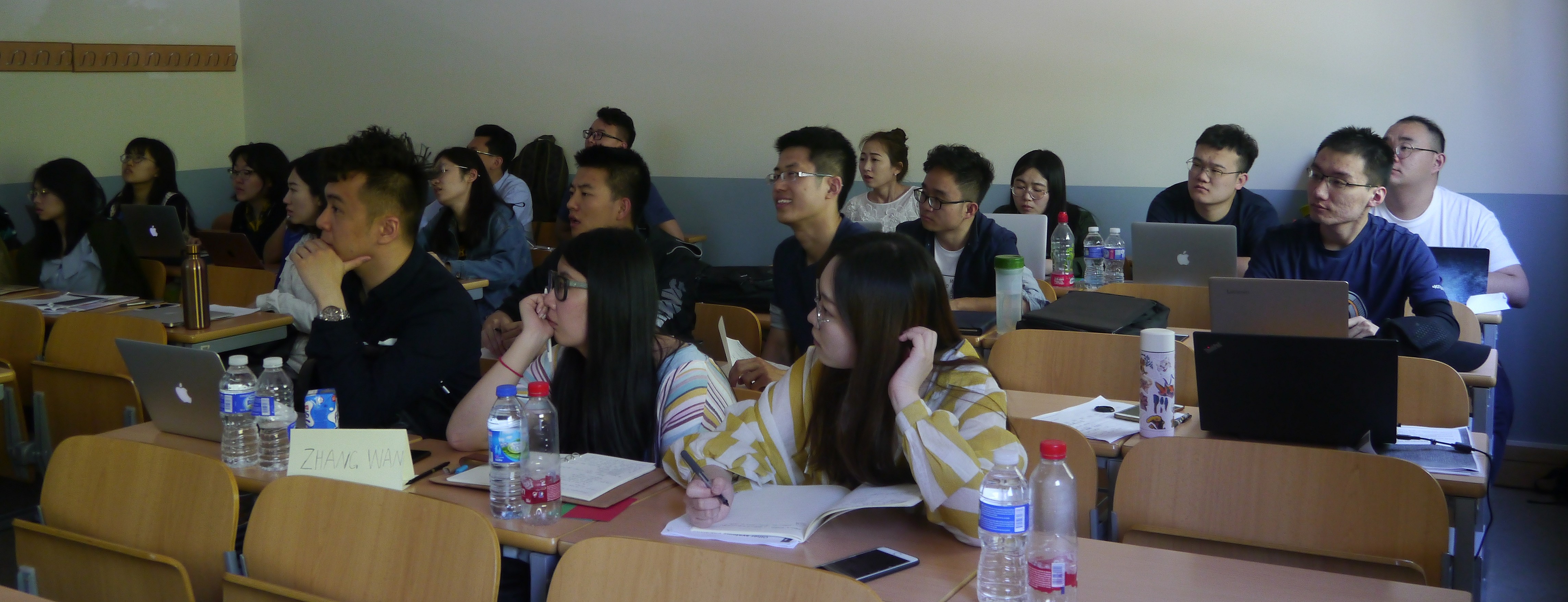Twenty-four double-master students and two European and international law master students from CESL will take a 2018 elective class (6 credits) at a partner institution in Spain, the Autonomous University of Madrid, for a three-week period from 5th May to 2nd June. After the course twenty-five students will stay on for a week of study. The course will be given by Andrea Macía, Nieves Moralejo, Borja Suárez, Gonzalo Basso, Víctor Saucedo and Elisa Torralba from Autonomous University of Madrid. The teaching content comprises modules such as "A Comparative View of Tort Law", "European Intellectual Property Law", "Pension Reforms in the European Union", "Criminal Law in Europe", "Separated by History: Civil Law and Common Law from a Historical Perspective" and "Specific questions concerning the Law on Companies in the EU".
At 3pm on Sunday 13th May 2018 Ms. Chen Yingfang coordinated the bus transfer of the first group of incoming students to Autonomous University of Madrid. After a short rest in their dormitories Ms. Chen showed the students to the supermarket to purchase groceries. By 10pm the sun set behind the Spanish mountains and the final batch of students from Beijing had also by then arrived at Autonomous University of Madrid.
At 9am on Monday 14th May, Spanish student assistant Mateo Garcias gave the incoming students a tour of the campus including the restaurant, law school and library. Mateo introduced the students to the colourful campus life here at Autonomous University of Madrid.

At 10am Prof. Jessica Almqvist and Prof. Sebastian Lopez welcomed the students and spoke about the course programme. The professors informed everyone that 15th May marks the beginning of the San Isidro Festival in Spain, a festival dedicated to the saints of Madrid. It is the most popular festival in the city. It is customary for residents to wear traditional clothing during the pilgrimage and to drink holy water on the holy grounds. The hawkers sell various kinds of dim sum. The bull markets also hold a series of concerts and open-air dance parties- so the second day of the course would be a day-long holiday! Afterwards, the professor and the students held a welcoming ceremony in a Spanish-style coffee shop on campus where they ate breakfast together. The students were amazed at the leisure with which the people of Madrid ate breakfast (which began earliest at 10am) and thoroughly enjoyed the delicious food, especially the toast and coffee. The students chatted over breakfast about the joys of the journey so far and their arrangements for studying and living abroad.

At 12pm the first class, “Comparative view of tort law" was given by Prof. Andrea Macía. The Professor had previously taught the students a one-week legal tradition course in China and she was familiar with students so after just a brief greeting she commenced the class. At 2pm the students had an hour for lunch. From 3-6pm, Professor Nieves Moralejo taught "EU Intellectual Property Law." Nieves Moralejo incorporates quite a bit of humour into her lectures and likes to use a variety of exaggerated facial expressions and movements to engage students. That said, her lectures were presented in a simple manner with interesting opinions on many concepts. As a result there was a great atmosphere andthe course was filled with laughter.

After thefinal course, most of the students went to the city centre to purchase the basics. There is a train on campus that travelsnear to the dorms and it takes only about fifteen minutes by train to reach Puerta del Sol. The Puerta del Sol square is filled with the passion of the Spanish people and we found the architecture and street artists’ performances breathtaking. Walking along students are constantly stopping to taste the Spanish specialties and watch the music performances.

The beginning of the Spanish elective courses marked the arrival of the entire cohort of CESL students who went to study at the seven partner universities in Europe. Regardless of their homeland and the many various conventions and laws in their country of origin - be it in the Iberian Peninsula, Scandinavia, the Great Plains of Hungary, the seat of the European Parliament, the Pandecton system, the first place for the legalisation of same-sex marriage, the capital of the Holy Roman Empire - together all of the students will be immersed in study in this new and exciting place. China-EU School of Law takes on “European time.”
